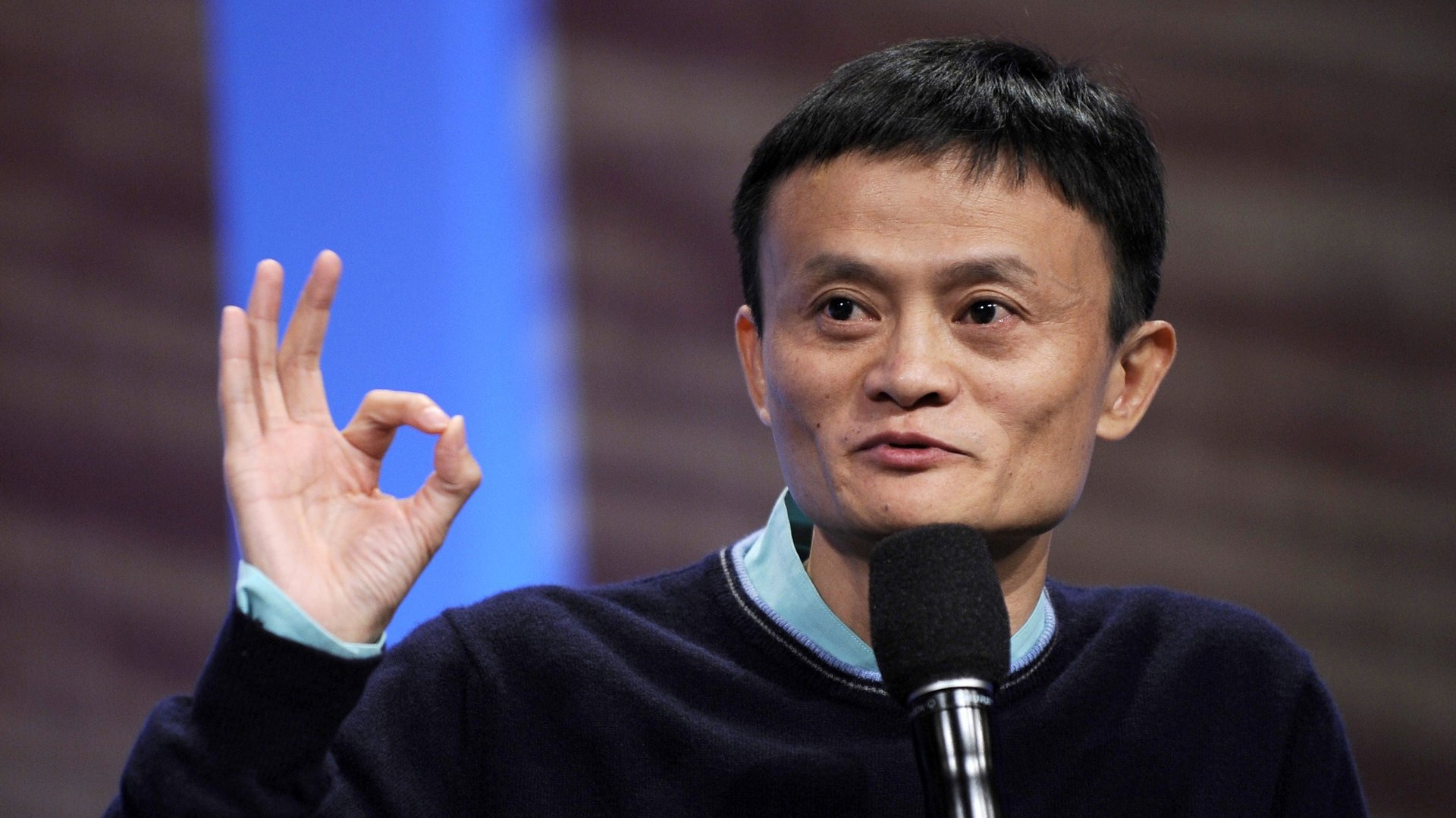Jack Ma, China’s quirkiest businessman, may be taking Alibaba to the world’s biggest tech IPO
Jack Ma announced today that he is stepping down as CEO of Chinese e-commerce giant Alibaba Group, though he will remain executive chairman. While Ma says the aim is to promote Alibaba’s younger leaders, the timing hints that he is priming the company for an IPO, rumored to be planned for late 2013 or early 2014. Last autumn, the group bought back half of Yahoo’s 40% stake in Alibaba.com, setting the stage for a public listing under its own aegis.


Jack Ma announced today that he is stepping down as CEO of Chinese e-commerce giant Alibaba Group, though he will remain executive chairman. While Ma says the aim is to promote Alibaba’s younger leaders, the timing hints that he is priming the company for an IPO, rumored to be planned for late 2013 or early 2014. Last autumn, the group bought back half of Yahoo’s 40% stake in Alibaba.com, setting the stage for a public listing under its own aegis.
At a rumored $40 billion, Alibaba may be China’s biggest internet company. That’s a testament to Ma’s unflagging innovation—particularly in China, which is notorious for its copycat versions of Western tech sites. If it goes public, Alibaba will have a good shot at becoming the biggest tech IPO in history, propelling the scrappy, perpetually under-dressed former English teacher to the level of tech deity that includes the likes of Mark Zuckerberg and Steve Jobs.
Possibly China’s quirkiest entrepreneur, Ma defies the flashy style typical of other captains of the country’s digital industry. He rarely appears in public without a polo shirt and a sweater, collar tucked in, and is unabashed in describing his lowly English-teacher roots. Ma’s tech prowess belies his obsession with martial-arts stories—he reportedly christens each Alibaba employee with a nickname from a martial-arts serial. His business philosophy supposedly revolves around taijiquan (the ancient martial art better known in the West as tai chi). He brings a personal tai chi trainer wherever he goes and recently partnered with movie star Jet Li to promote tai chi, reports Bloomberg Businessweek. He’s also a staunch environmentalist and sits on the global board of the Nature Conservancy. Business doesn’t figure much into Ma’s wide range of personal interests, which include traditional medicine, poker and history (he recently audited several courses at Berkeley).
Still, Ma’s genius for technology is undeniable. It’s most notable in the triumph of Taobao, Alibaba’s online shopping site, over eBay. Where eBay was focused on auction-style selling, Ma used Taobao site to fill a void in China’s bricks-and-mortar retail environment. He shaped it into an online storefront that linked small business owners across China’s sprawling topography to customers yearning for more choice, convenience and transparent prices. (In 2010, this business-to-consumer part of Taobao was spun off as a separate site, Tmall.) EBay, which had tried to break into the Chinese market by buying a local online retailer, EachNet, in 2003, was rapidly knocked out of the market, and is only now trying to stage a comeback. “EBay may be a shark in the ocean,” Ma famously said, “but I am a crocodile in the Yangtze River. If we fight in the ocean, we lose—but if we fight in the river, we win.”
Alibaba’s new CEO will be announced on May 10, says Ma. The changing-of-the-guard appears to have been in the works for a while, with the announcement capping off the latest round of rumors (link in Chinese) that Ma would retire in 2013. Just days ago, the group wrapped up its most significant corporate reorganization since its 1999 founding, which saw it carved up into 25 business sectors led by strategic committees.
Alibaba brought in $2.8 billion in revenues in 2011, at 67% gross margin. Taobao, meanwhile, claims 33% market share, while its combined sales with Tmall hit $160 billion from January to November 2012.